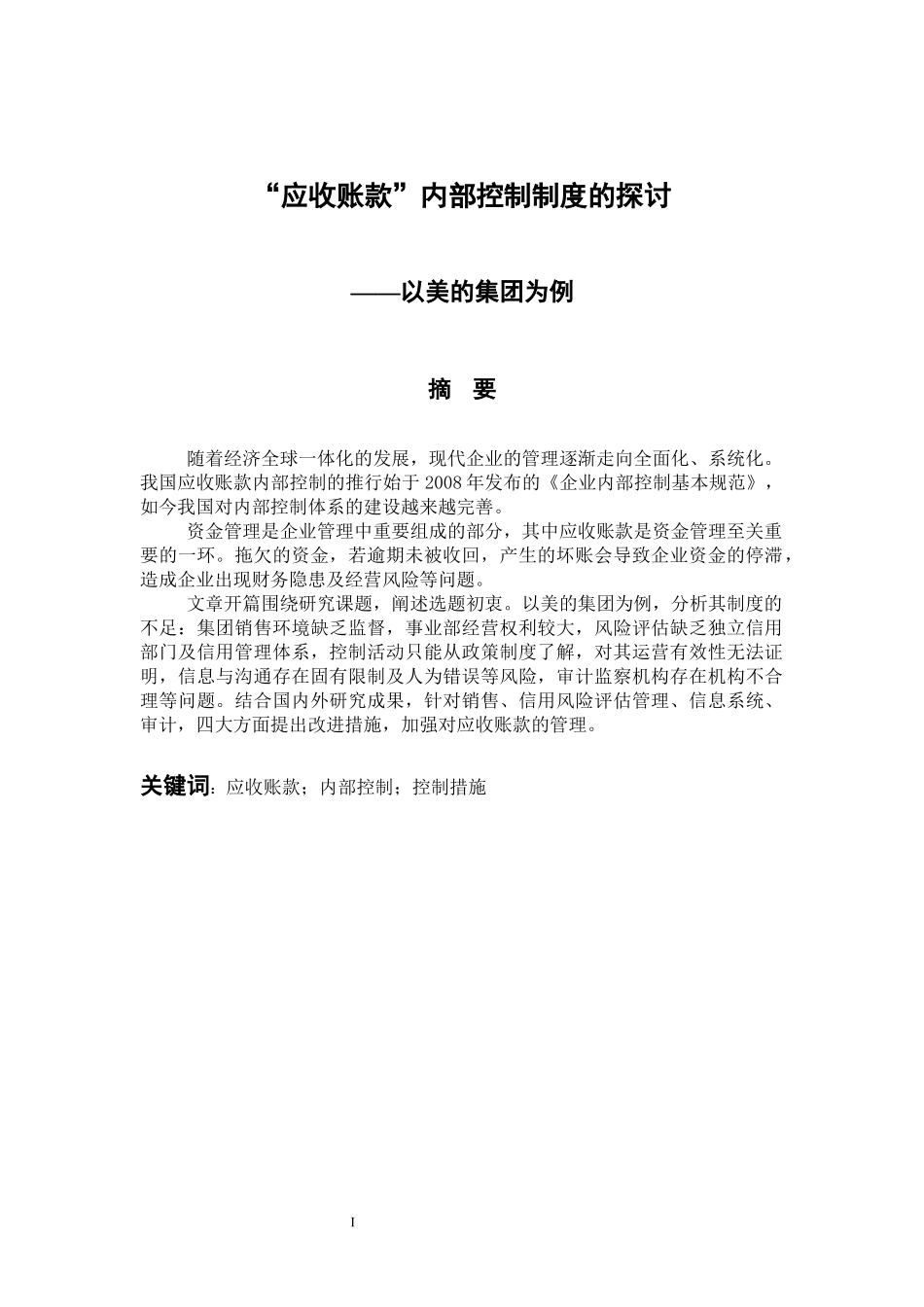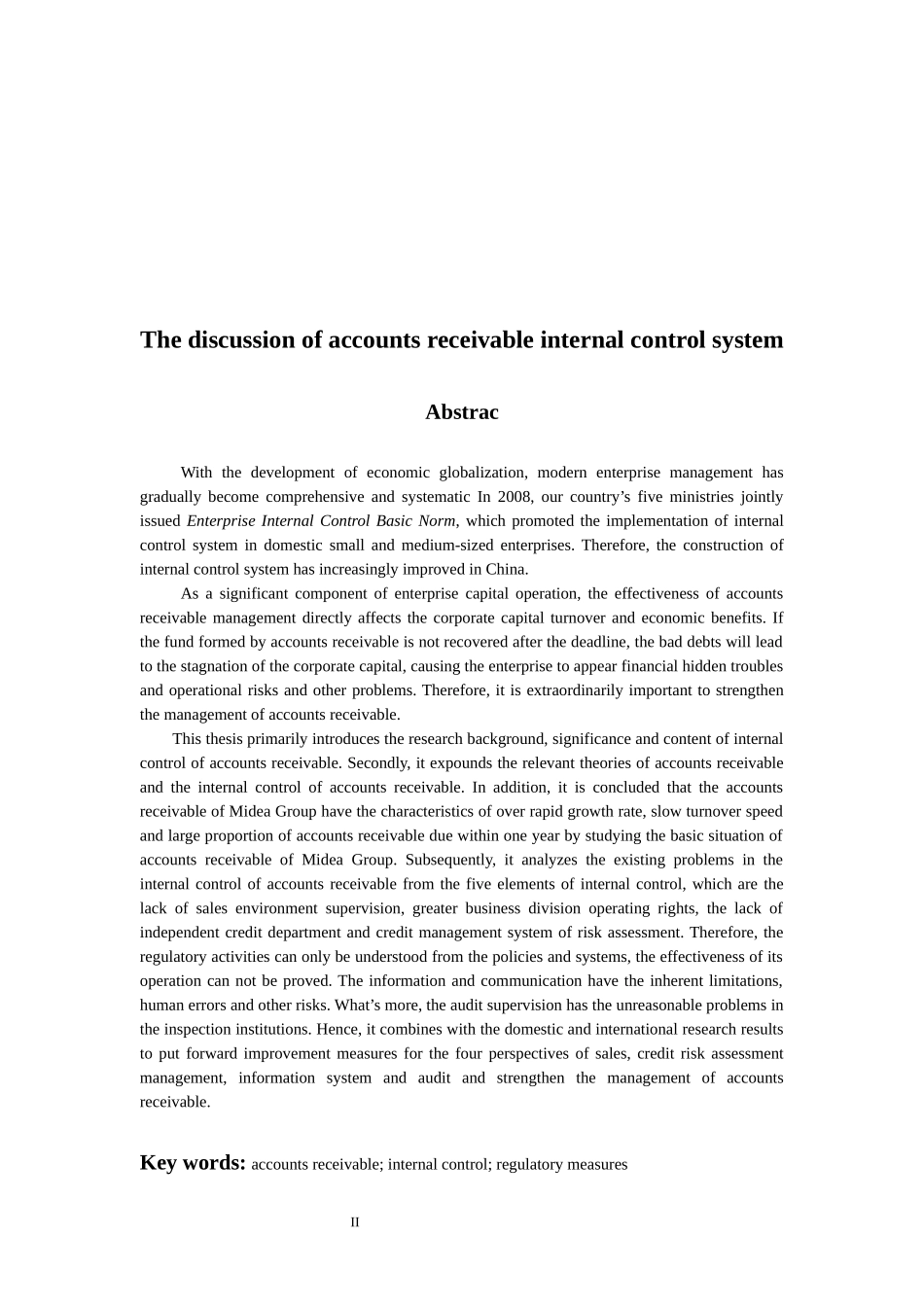I“应收账款”内部控制制度的探讨——以美的集团为例摘 要随着经济全球一体化的发展,现代企业的管理逐渐走向全面化、系统化。我国应收账款内部控制的推行始于 2008 年发布的《企业内部控制基本规范》,如今我国对内部控制体系的建设越来越完善。资金管理是企业管理中重要组成的部分,其中应收账款是资金管理至关重要的一环。拖欠的资金,若逾期未被收回,产生的坏账会导致企业资金的停滞,造成企业出现财务隐患及经营风险等问题。文章开篇围绕研究课题,阐述选题初衷。以美的集团为例,分析其制度的不足:集团销售环境缺乏监督,事业部经营权利较大,风险评估缺乏独立信用部门及信用管理体系,控制活动只能从政策制度了解,对其运营有效性无法证明,信息与沟通存在固有限制及人为错误等风险,审计监察机构存在机构不合理等问题。结合国内外研究成果,针对销售、信用风险评估管理、信息系统、审计,四大方面提出改进措施,加强对应收账款的管理。关键词:应收账款;内部控制;控制措施IIThe discussion of accounts receivable internal control systemAbstracWith the development of economic globalization, modern enterprise management has gradually become comprehensive and systematic In 2008, our country’s five ministries jointly issued Enterprise Internal Control Basic Norm, which promoted the implementation of internal control system in domestic small and medium-sized enterprises. Therefore, the construction of internal control system has increasingly improved in China.As a significant component of enterprise capital operation, the effectiveness of accounts receivable management directly affects the corporate capital turnover and economic benefits. If the fund formed by accounts receivable is not recovered after the deadline, the bad debts will lead to the stagnation of the corporate capital, causing the enterprise to appear financial hidden troubles and operational risks and other problems. Therefore, it is extraordinarily important to strengthen the management of accounts receivable. This thesis primar...


